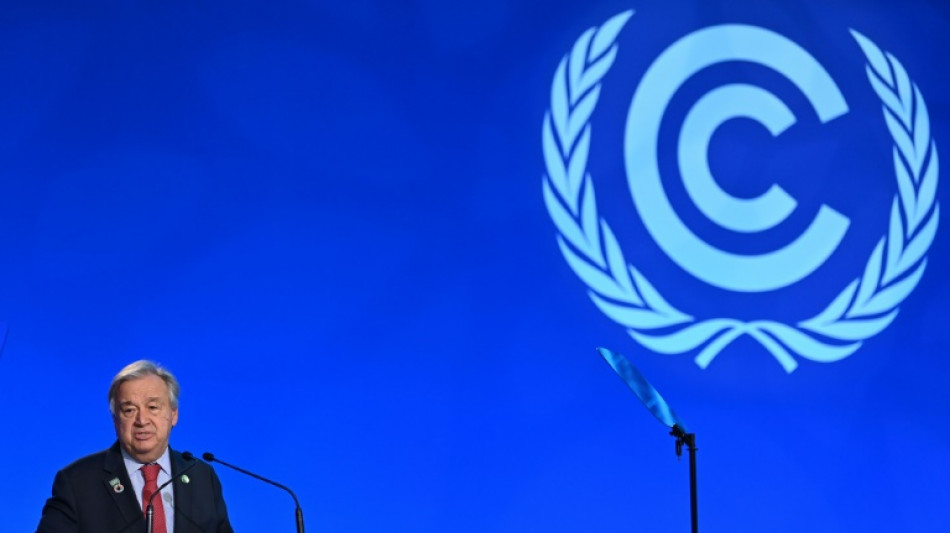

Climate-stricken world needs renewables Marshall Plan: UN chief
UN chief Antonio Guterres on Wednesday outlined what amounts to a global Marshall Plan for ushering in a world powered by renewable energy rather than coal, gas and oil.
To avoid catastrophic climate change, humanity must "end fossil fuel pollution and accelerate the renewable energy transition, before we incinerate our only home," he said in prerecorded remarks timed to coincide with the release of a major UN state-of-climate report.
Renewable technologies should be treated as freely available "global public goods", unconstrained by intellectual property, he said.
One option might be so-called patent pooling, as has been done by major drug companies to speed the delivery of life-saving drugs for HIV/AIDS and tuberculosis, noted a senior UN official who asked not to be named.
"The Secretary-General believes that the conversation around intellectual property should happen because we are in a crisis," the UN official said.
"If we have a ready solution, why not relax intellectual property rules so that solution can help us solve this crisis?"
Guterres singled out battery storage, calling for an international coalition of industry, tech companies and financial institutions, led by governments, to "fast-track innovation and deployment".
Solar and wind are the fastest growing clean energy technologies, but storing renewable electricity that can only be generated when the sun is shining or the wind blowing has been a persistent bottleneck for even more rapid rollout.
- Not fast enough -
It was unclear whether Guterres envisions a new oversight body or favours working through existing structures, such as the 86-nation International Solar Alliance or the G20 group of major economies.
The UN chief's five-point plan to "jump-start" a renewables boom also called for scaling-up and diversifying the supply of critical components and raw materials, such as rare Earth metals.
Currently, lithium -- crucial to the manufacture of electric vehicle batteries -- is sourced from a handful of countries, with China controlling 80 percent of global refining, according to BloombergNEF.
Transitioning to clean energy will also require far greater supplies of copper, silicon, nickel, cobalt and other elements that are scarce and/or in high demand.
Europe alone is estimated to need 35 times more lithium than it uses today over the next three decades.
Expanding renewable capacity is forecast to account for almost 95 percent of the increase in global electricity through 2026, according to the International Energy Agency (IEA).
But projected growth is not nearly fast enough to ensure the Paris Agreement target of capping global warming at 1.5 degrees Celsius above preindustrial levels.
Currently, solar and wind energy only account for eight percent of global electricity generation. Adding hydro and other renewable sources pushes the total up to 30 percent, with coal and gas still dominant overall.
- $11 million -
Guterres also said governments must cut red tape and streamline approvals for solar and wind projects.
The IEA has identified the issuing of permits and grid integration as major barriers to accelerating renewables deployment.
"In Europe, it takes eight years for a wind project to be approved," the UN official said.
"In the United States, I understand that it can take as much as a decade at the federal level alone, where one needs to go through about 28 federal agencies."
The UN Secretary-General also called for an end to approximately half-a-trillion dollars in fossil fuel subsidies, roughly two-thirds of which go to consumers and the rest directly to industry.
"Every minute of every day, coal, oil and gas receive roughly $11 million in subsidies," Guterres said.
"While people suffer from high prices at the pump, the oil and gas industry is raking in billions from a distorted market," he added. "This scandal must stop."
Finally, Guterres challenged private and public finance to scale up investment in solar and wind to at least $4 trillion a year, more than triple current levels.
Development banks and finance institutions should align their lending portfolios with the Paris treaty temperature targets by 2024, he said.
F.Lecce--IM




